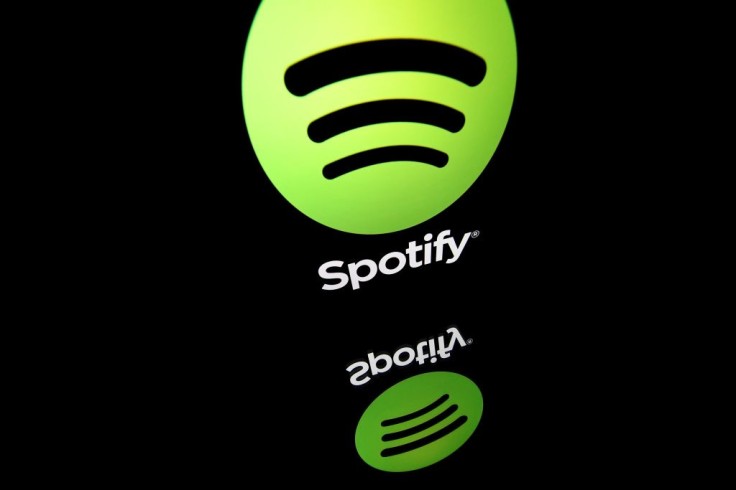
Spotify and the National Music Publishers' Association continue their public feud concerning licensing rights and "bundled" subscriptions on the streaming giant's platform. Last week, the NMPA sent Spotify a cease and desist letter concerning the use of unlicensed lyrics in video and podcast features as well as an upcoming in-app "remix" feature.
The organization is now turning to Congress, hoping to change section 115 of the Copyright Act, which "prevents private negotiations in a free market" for mechanical royalty rates for songwriters and music publishers in the U.S. Since 1909, songwriters and music publishers' rates have been determined by the government's Copyright Royalty Board.
The NMPA and Spotify were briefly in a "period of peace," per NMPA President David Israelite, since a 2022 decision that would boost songwriters' and publishers' royalty rates over the next five years.
The two are at odds once again.
In a guest column on Billboard, Israelite expressed his discontentment with Spotify's ongoing business practices. The streaming service has come under fire from the NMPA and Mechanical Licensing Collective (MLC) for its new bundled subscription packages.
Spotify's freshly launched Audiobook Access Plan, which costs $9.99 monthly and offers users access to 15 hours of audio books, does not include ad-free music. However, the service's Premium package allows subscribers access to 15 hours of audio books.
These bundled packages allow streaming platforms to reduce royalty rates for artists, songwriters and publishers.
Spotify also raised its prices for its subscription packages by $1 to $2, depending upon the plan. Despite these price increases, artists will not receive a higher payout. The new bundle feature is expected to result in a "$150 million annualized reduction in U.S. mechanical royalties."
Israelite criticized Spotify, writing that "Only in Spotify's world would a price hike for users mean a lower royalty rate for songwriters."
The MLC filed a lawsuit against Spotify, saying that "The financial consequences... are enormous for songwriters and music publishers." The organization argues that Spotify's Premium subscription plan is the same as it was "prior to March 1" when "Premium subscribers also had access to the same number of hours of audiobooks as Audiobooks Access subscribers now have."
The MLC claims that Spotify "improperly characteriz[ed] the service as a different type of subscription offering and underpaying royalties." The organization argues that there has been no change to Spotify's premium subscription plan and "no corresponding reduction to the revenues that Spotify generates from its tens of millions of Premium subscribers."
Israelite echoed these thoughts, writing that "Calling Spotify's premium service a bundle is dishonest."
In his column, Israelite revealed that the NMPA will soon "unveil a legislative proposal to permanently fix the power imbalance songwriters face by being subject to a compulsory license for their songs."
The organization then wrote a letter to key members of both the House and Senate Judiciary Committees, including Sen. Richard Durbin (D-Ill.), Sen. Lindsey Graham (R-SC), Rep. Jim Jordan (R-OH) and Rep. Jerrold Nadler (D-NY.)
The NMPA criticized Section 115 of the Copyright Act, writing that "Those who do operate in a free market, such as record labels, have negotiated protections against bad faith tactics. However, music publishers and songwriters have no such leverage under the [Copyright Royalty Board] to do so."
The NMPA proposed that that "Congress should allow rightsholders the choice to license through the MLC using the statutorily set royalty rates or to withdraw from the MLC and operate in a free market if they meet certain conditions."
The letter continues, detailing a path for copyright owners:
"If copyright owners chose to withdraw their copyrights from the blanket license, currently administered by the MLC, they would be required to do the following:
Require all rightsholders who exercise this option to provide 6 months' notice to the Register of Copyrights and the MLC;
Require that the withdrawing rightsholders ensure their musical work copyrights and ownership interests are registered in the MLC's public database;
Require the MLC to flag those rightsholders and their catalogues as withdrawn from the MLC blanket license and subject to voluntary license negotiations; and
Require copyright holders to maintain with the MLC database current, up-to-date contact information, which would be used to contact for licensing."
The NMPA sees these changes as a way to return the "basic principles of fairness to the market by requiring streaming platforms to deal with music makers as partners."
Not everyone agrees with this call on Congress. Graham Davies, President and CEO of the Digital Media Association (DiMA), countered the NMPA's request, slamming their proposal to restructure Section 115. He wrote that the music industry "as a whole...depend on the Section 115 blanket license, established the Music Modernization Act (MMA), to operate."
Davies found it "disappointing" of the NMPA to seek to "dismantle the MMA."
"The MMA falls apart and the industry will revert to the inefficient and fragmented licensing regime that existed before the MMA became law."
© 2025 MusicTimes.com All rights reserved. Do not reproduce without permission.







